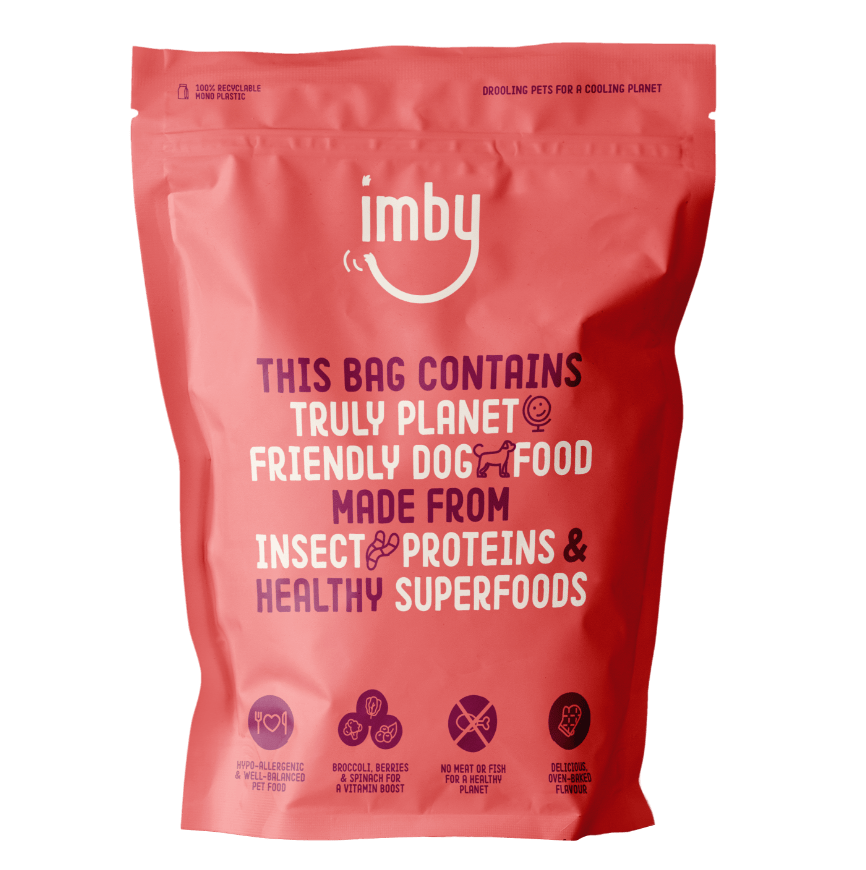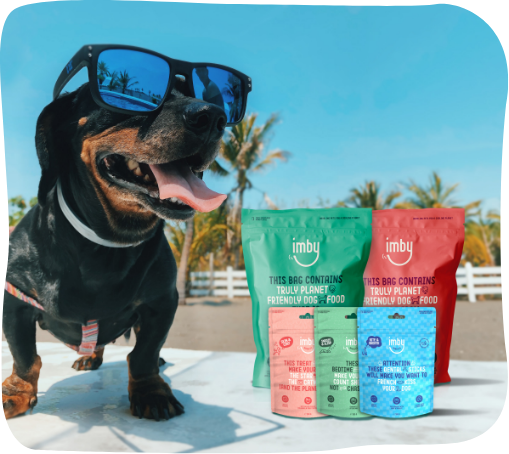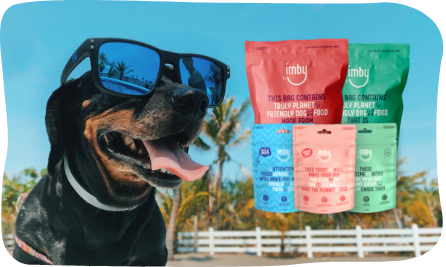Use code CHANGE20 for 20% off your first dog food order!
Use code CHANGE20 for 20% off your first dog food order!



Thinking about switching your dog to a vegan diet? You’re not alone! Vegan and vegetarian dog food has gained a lot of popularity in recent years. Still, a lot of owners have questions about vegan dog food. Is it healthy for my dog? What are the benefits of vegan dog food? Will my dog get a balanced diet? And are there any health benefits to switching to a vegan diet?
In this article, we dive deep into the world of vegan dog food and look at the pros and cons of a vegan diet for your dog. We’ll discuss the different ingredients you often find in vegan food and also help you switch from traditional dog food to vegan dog food!
Before you make the choice to switch your dog to a vegan dog food, it is of course important to know the difference between vegan and traditional dog food. Here we discover the differences in ingredients and what impact switching to vegan dog food has on the environment compared to traditional dog food.
Traditional dog food, as you could already guess, consists mainly of animal ingredients. Just think of delicious cuts of meat, for example, as well as bone marrow and other meat byproducts such as organs.
Vegan dog food, on the other hand, contains no animal ingredients at all. This dog food gets its nutritional value mainly from vegetables, grains and vegetable protein sources such as lentils, soy and peas.
Of course, a purely plant-based diet may not always contain all the vitamins and minerals your dog needs. Therefore, these extra vitamins and minerals are added to the food. However, it is a good idea to choose high-quality vegan wet food or vegan dog food. This is because the quality of the ingredients can vary greatly from brand to brand.
When you switch your dog to a vegan diet, it will have a very positive impact on the environment. Meat production – even that used to feed our pets, is a huge source of greenhouse gases. These gases contribute to climate change.
Therefore, by choosing vegan dog food, you are supporting an industry that has a lot less environmental impact compared to traditional meat production.
Every dog is unique, but in theory, all dog breeds and ages can switch to a vegan diet. Still, it’s a good idea to check with your veterinarian before switching your dog to a new diet, especially if your dog has certain health issues.
Before we give some tips on the specific nutritional needs of different dog breeds, it’s a good idea to look at the nutritional needs of dogs in general. A dog needs the following nutrients regardless of the breed:
Although most vegan dog food will fit any breed of dog, there are some things you can look out for.
If you are thinking of putting your dog on a vegan diet, it is best that you introduce this dog food little by little. To help you make the switch from traditional to vegan dog food, we’ve gathered some information for you here.
Start slowly with the new vegan food to avoid tummy upsets. Start by mixing a little vegan food with your dog’s regular food. Over the next two weeks, you can gradually increase the portion of vegan food. It’s best to start with 10% to 25% vegan dog food and adjust as your dog responds well to the new for. If your dog does not like the new for, you can let him or her get used to the food longer or you can try a different brand or flavor.
Changing food too suddenly can give your dog stomach or intestinal problems such as vomiting or diarrhea. By taking it nice and slow, you give your dog’s stomach time to adjust and prevent such ailments.
Did you know that vegan dog food has a lot of health benefits for your dog? Namely, it can help your dog manage weight and maintain proper digestion.
Although dogs in the wild are, of course, generally carnivores, they can follow a balanced diet consisting mainly of plant-based ingredients. Needless to say, dogs need a balanced diet rich in protein, fats, and adequate vitamins and minerals.
Vegan dog food is formulated to meet all of these nutritional needs. Vegan dogs can get protein from alternative sources such as peas, lentils and potatoes and fats from ingredients such as flax seed and coconut oil.
When we look at the ingredients of vegan dog food, we see that it can be lower in fats compared to dog food with animal products. This ensures that vegan dog food can help with weight management. The high amount of fiber in plant-based food also helps your dog maintain proper digestion and regulate blood sugar levels.
Dogs with food allergies also often benefit from a vegan diet. In fact, a lot of dogs are allergic to animal proteins. These are lacking in vegan dog food, which in turn is very good for your allergic dog.
Did you know that switching to vegan dog food or veggie dog food can also help your four-legged friend with allergies?
Just like us humans, our dogs can also suffer from food allergies. The way they react can be very different, but often we see the following reactions in our dogs when they have eaten something they can’t handle well:
Dogs who are allergic to certain animal ingredients may feel better when they switch to a diet of vegan dog food or vegan wet food. This is because there are no animal ingredients in this veggie food. This can prevent vegan dogs’ reaction to protein.
Vegan dog food, with ingredients such as sweet potatoes, brown rice and other tasty greens, is often seen as a good alternative to traditional dog food that is less likely to trigger allergic reactions. In fact, it often contains hypoallergenic grains such as quinoa or cruciferous vegetables such as cauliflower and broccoli.
But every animal is unique. Even if these plant-based ingredients sound very healthy, of course, it is still very important to keep a close eye on your dog. How does he react after eating? Is his energy level different? Does his coat still shine nicely? Definitely contact your veterinarian if you notice any changes.
When you’re looking for good food for your veggie dog, you soon find yourself faced with the choice of vegan wet food or vegan dry food. Both have their advantages and disadvantages. Still, it is important to understand how these two types of vegan dog food differ from each other and what factors you should consider so you can pick the best vegan dog food for your dog.
Vegan Wet Food:
Vegan wet food generally has a high moisture content, often around 70-80%. It also tends to be more flavorful and smell better. This makes wet food a lot more appealing to dogs, especially for four-legged friends who are picky. Wet food is also very good for dogs who have kidney problems, just because it has a very high moisture content.
Vegan Dry Food:
Dry food, on the other hand, as you could guess, contains a lot less moisture. It does often contain a lot more calories per gram and also generally has a longer shelf life compared to wet food. In addition, chewing dry kibble can also help keep your dog’s teeth clean.
When faced with the choice of vegan dry food or vegan wet food for dogs, there are a few factors to keep in mind.





It's all to make your browsing and shopping experience at Imby, a real treat! Read more about it in our Privacy Policy.
4.8 out of 5 stars
based on 1171 reviews



"*" indicates required fields